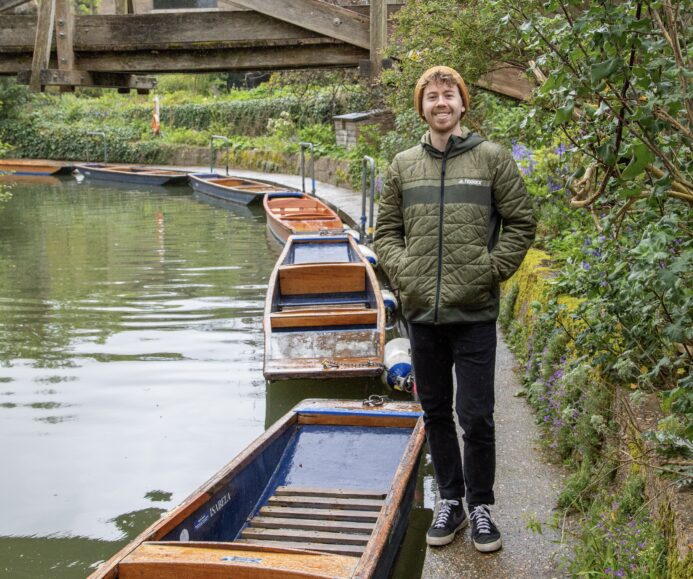
Starting his PhD in 2019, much of Jonathan Itcovitz’s early Darwin experience was inhibited by pandemic restrictions. But if his world had shrunk, his research reached for the stars.
Looking at the early evolution of terrestrial planets, Jonathan focused on the effect of collisions with planetary bodies on the atmospheres of Earth-like planets, and what that might mean for how the Earth itself developed.
“The Astronomy department at Cambridge is unusual in that it didn’t require me to choose a specific project and supervisor before I started,” he says. “I was able to spend the first few months testing different ideas and working methods until I truly found what I would spend the next four years on. I ended up with a very cross-disciplinary research focus, which combined Astronomy, Physics, Earth Sciences and even a bit of Biology.”
Living in College-owned halls “down by the famous Shell garage”, Jonathan found himself strongly affected when, after Covid hit, “many of the close friends I had made at Darwin went home”. But staying at Darwin throughout the pandemic turned out to be a gift.
“College was a lifeline. We were able to remain in our College accommodation, we were able to socialise with others within our Darwin bubble, and the College became a home from home for me.”
The pandemic also resulted in a new, very Darwinian interest. His fellow remaining housemate, Michael Schneider, introduced him to joys of taking to the river in a kayak or punt, and Jonathan served as Admiral of the Punts in his final year.
Having previously studied Physics at Imperial College London, Jonathan had attended a summer course at Cambridge prior to his PhD. But, moving in undergraduate circles, Darwin was not a College anyone had recommended.
“I don’t think many of the people I met had even heard of it!” he says now. “Even during my time at Darwin, I found other students often didn’t really know anything about it. It flies under the radar, but it’s a very special place.”
Since submitting his PhD last December, Jonathan has now returned to Imperial as a Postdoctoral Researcher, studying aviation and climate.
“My research focuses on condensation trails (contrails), the linear clouds left by aircraft, which represent a huge proportion of the climate impact of flying. But because they only form in specific conditions, when the air is very cold and wet, we can often avoid creating them by flying higher or lower.”
The research involves a lot of direct engagement with industry and policy-makers – a change from the more esoteric focus of his PhD.
“I’m working at the interface between academia, industry, and policy. It’s a different feeling, researching something with such a strong tangible effect.”
